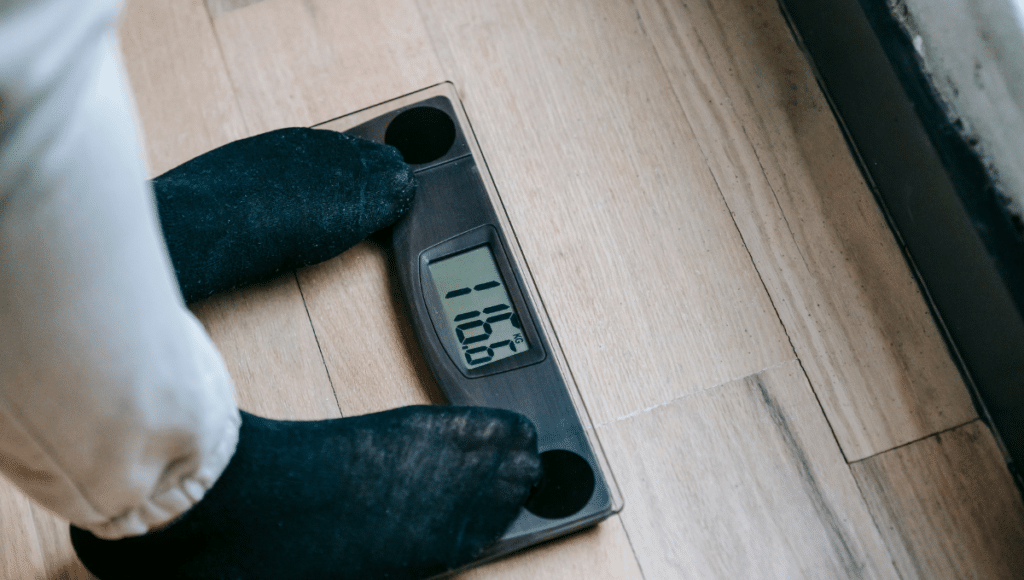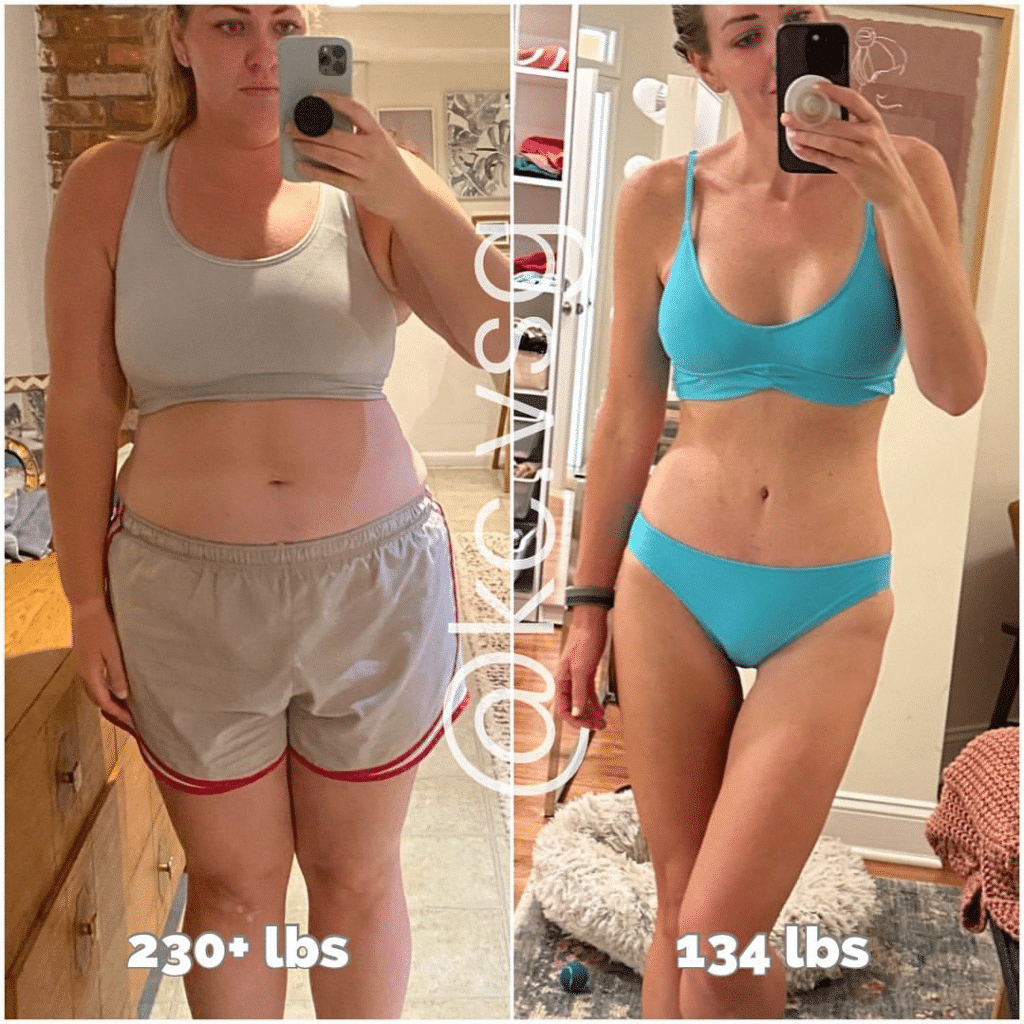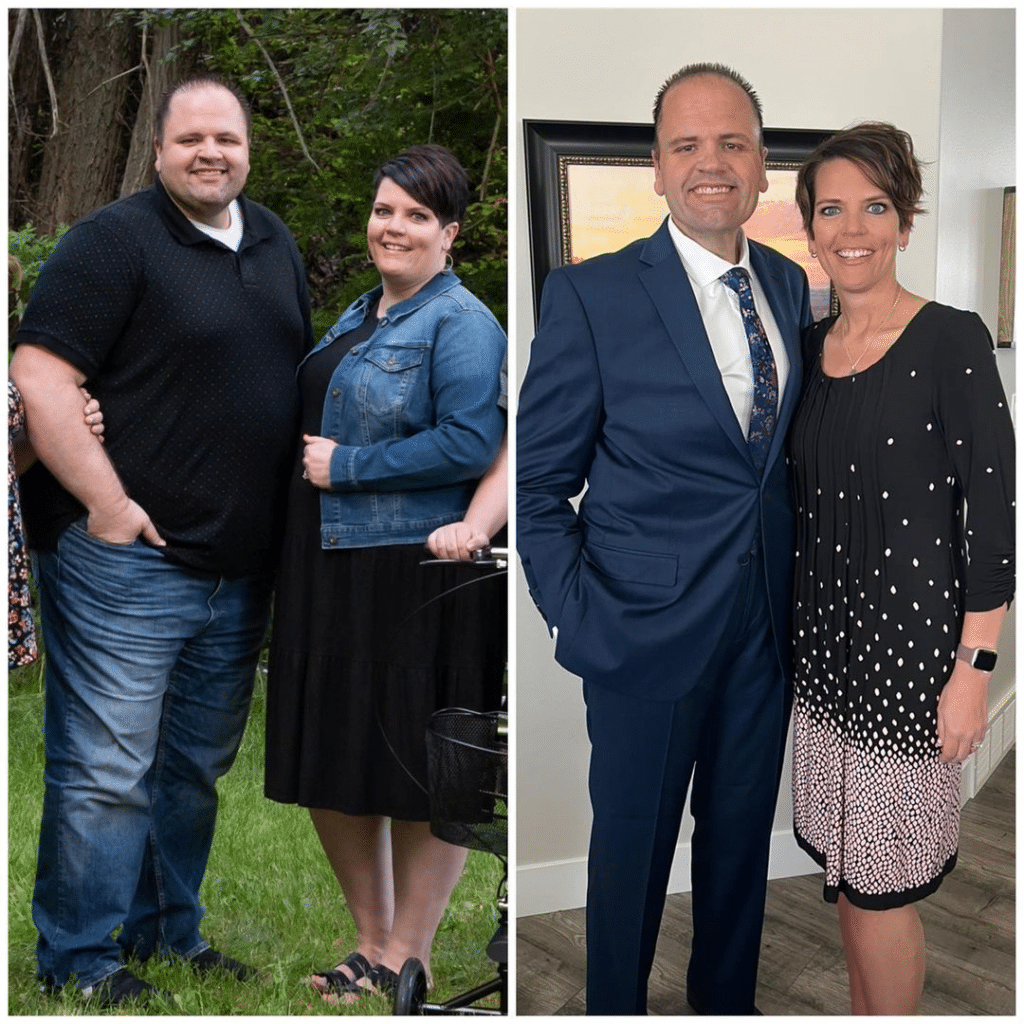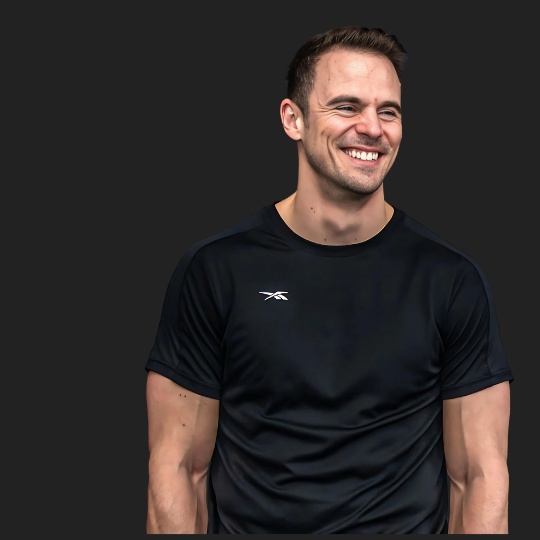The process of losing weight is a long one. Between making time for exercise classes and incorporating eating healthy into your daily life, there can be a lot of hiccups and plateaus. And of course, not every journey is the same. In this article, we’re going to go over the things you need to know, both before and after your weight loss journey along with some weight loss transformations that are sure to inspire you to keep going!
Jump to:
The Before: Finding Your “Why”
At the beginning of your weight loss journey, it’s important to figure out your “why.” Why are you struggling with weight gain in the first place? Why aren’t you okay with the extra weight? Why are you here at this point in your fitness journey? Why now?
So many “whys” and the only person who can answer these questions are you. This might require you to journal, to take a walk and think about what you want for yourself, to evaluate all your choices and the ways to get there and why you want to get there. This will help you determine your weight loss goals and even help you stay on track and reach your goal weight.
The Weight Plateau
Sadly, in every weight loss journey, plateaus are different for everyone. In most cases, you’ll see the weight shed pretty fast in the beginning, but eventually, you’ll reach a point where the body weight won’t go down and all the weight loss tips stop working. Most people are surprised when it happens to them because they’re still eating carefully and exercising regularly. The frustrating reality is that even well-planned weight-loss efforts can stall.
So what causes a weight plateau? As you lose weight, you lose some muscle along with fat. Muscle helps keep up the rate at which you burn calories (metabolism). This means as you lose weight, your metabolism declines, causing you to burn fewer calories than you did before. However, the slower the metabolism the slower your weight loss, even if you eat the same number of calories that helped you lose weight in the first place.
Now, do note that a weight plateau is not permanent. A lot of people will start to give up at this point, but it’s important to not lose hope. The only way to get past this is you need to either increase your physical activity or decrease the calories you eat. Using the same approach that worked at the beginning of your weight loss journey may maintain your weight loss, but it won’t lead to more weight loss.

The After: Long-Term Weight Management
The journey doesn’t end when you lose all the weight. There are some after-management things to consider like how your mindset will change and your relationship with food, however, let’s get in deeper with long-term weight management tips:
Food Choices
There are so many ways to eat from being on a vegan diet, to a keto diet, to a plant-based diet, to intermittent fasting, to trying a fad diet, to counting all your calories per day and using a food scale. Whether you track everything on a fitness app or simply start adding healthy meals to your daily routine, it’s important to discover what’s best for you. If you’re fluctuating between diets, it’s a great idea to keep a food diary and note any health issues and your current weight. It’s also a good idea to note the amounts of food you’re consuming along with your exercise regimen to help you stay on track even after you’ve gotten to your goal weight.
Cognitive Response
After losing weight, there are some mental health and cognitive blocks to work through, especially if you’ve followed the weight loss tips and have lost considerable weight. Living a healthy lifestyle can change not only your body but your mental health as well. It’s important to note that you’ll have to mentally prepare for the ups and downs of the weight loss journey and how your body will change.
Other Weight Management Options
If you’re still struggling, things like weight loss surgery, gastric bypass surgery, or bariatric surgery could be a good alternative option to helping you shed those extra pounds. Losing weight isn’t always as easy as it is for others and looking into other weight management options isn’t a sign of defeat. It’s actually extremely brave and smart to go after other weight-loss options to help jumpstart your goals and raise your quality of life.
Relapse Prevention
To prevent a relapse and gaining all or most of the weight back, it’s a good idea to try new things and keep it interesting. Many people hit plateaus or end up backtracking because they get stuck doing the same thing and never progressing further. There are options like new fitness classes, remaking your favorite comfort foods in a healthy way, trying a new weight-lifting grip, adjusting your portion sizes with your food intake, looking up healthier meals, and so much more.
Before And After Transformations To Inspire You
Kasey Morris is a prime example of what hard work can do for you. Her year transformation from 234 lbs to 137 lbs is beyond inspirational. She even explained it perfectly how not only did she shed physical weight but emotional weight. There were times she couldn’t do what her friends and family were doing on vacation because she was too big or too tired and now she doesn’t have that problem.

Credits:@kc.vsg
Lots of people think losing weight is a lonely journey, though for Jake and his wife is was a relationship-building opportunity! They even had their weight loss surgery on the same day. Just look at their amazing transformation.

Credits:@teacher_jake_78
From size 18 to size 6 and 145 lbs lost, Emma has a noteworthy and fantastic transformation that is one for the record books. This is where determination gets you!

Credits: @emma_slimming17
Why is it so difficult to lose weight and keep it off?
Many people have trouble losing weight and keeping it off because of so many things, but a big one is their inability to stick to a weight loss program, whether that’s something like Weight Watchers, going through a personal trainer, or even simply setting up your own workout routines and schedule. Having a healthier lifestyle is just that…a lifestyle. It takes up your entire life and becomes a daily thing and for most people that can be an issue or something their not committed to doing so this is why it’s so important to find your “whys.”
How long does it take to start seeing results from losing weight?
The first stage of weight loss is when you tend to lose the most weight and begin to notice changes in your appearance and how your clothes fit. This usually happens within the first 4–6 weeks of your weight loss journey. These first few weeks are when you’ll see the most change in your physical health and likely the most change. So, it doesn’t necessarily take long, but the road is long and hard. As long as you stay consistent and determined, you should see results in no time.















